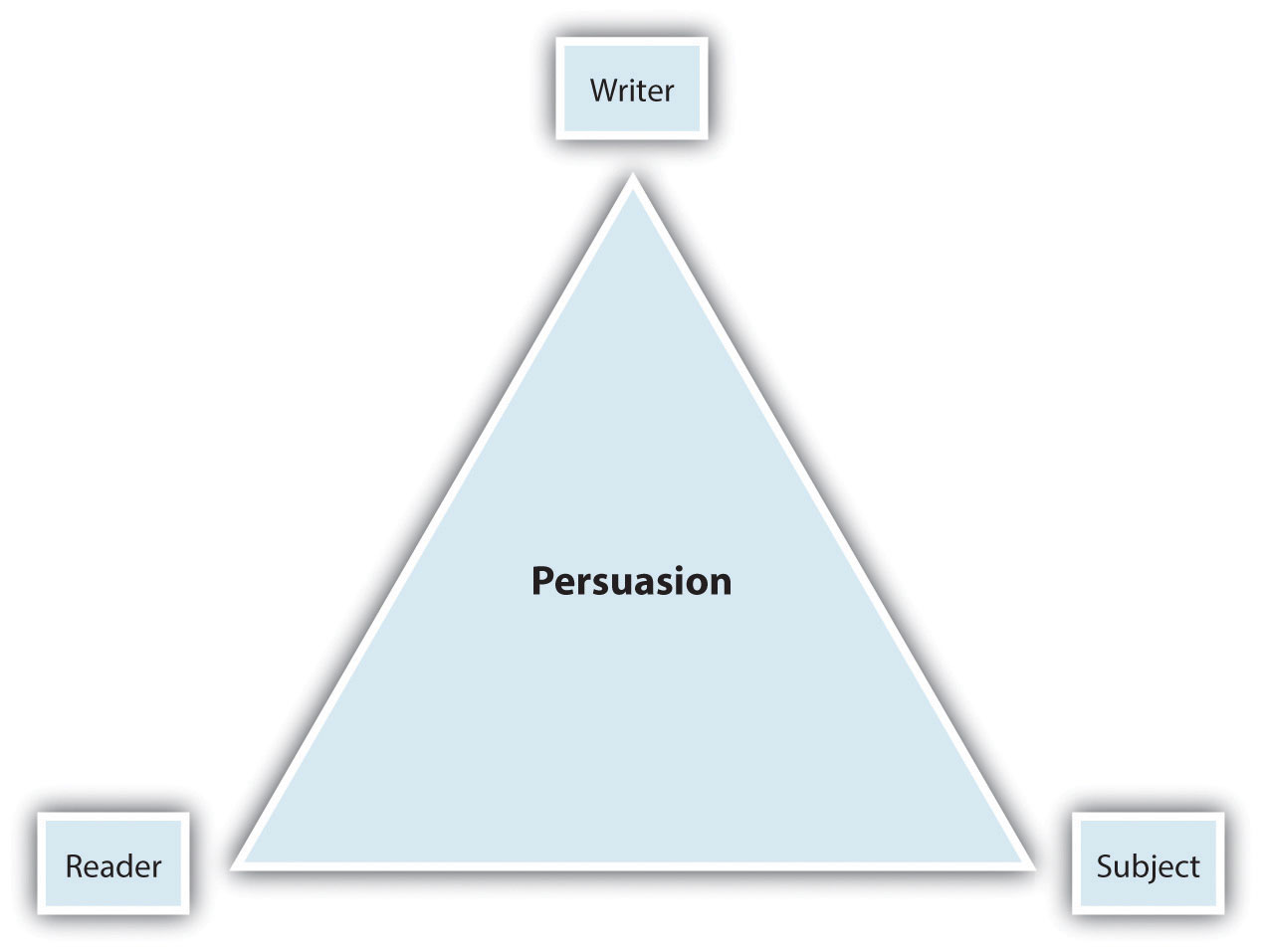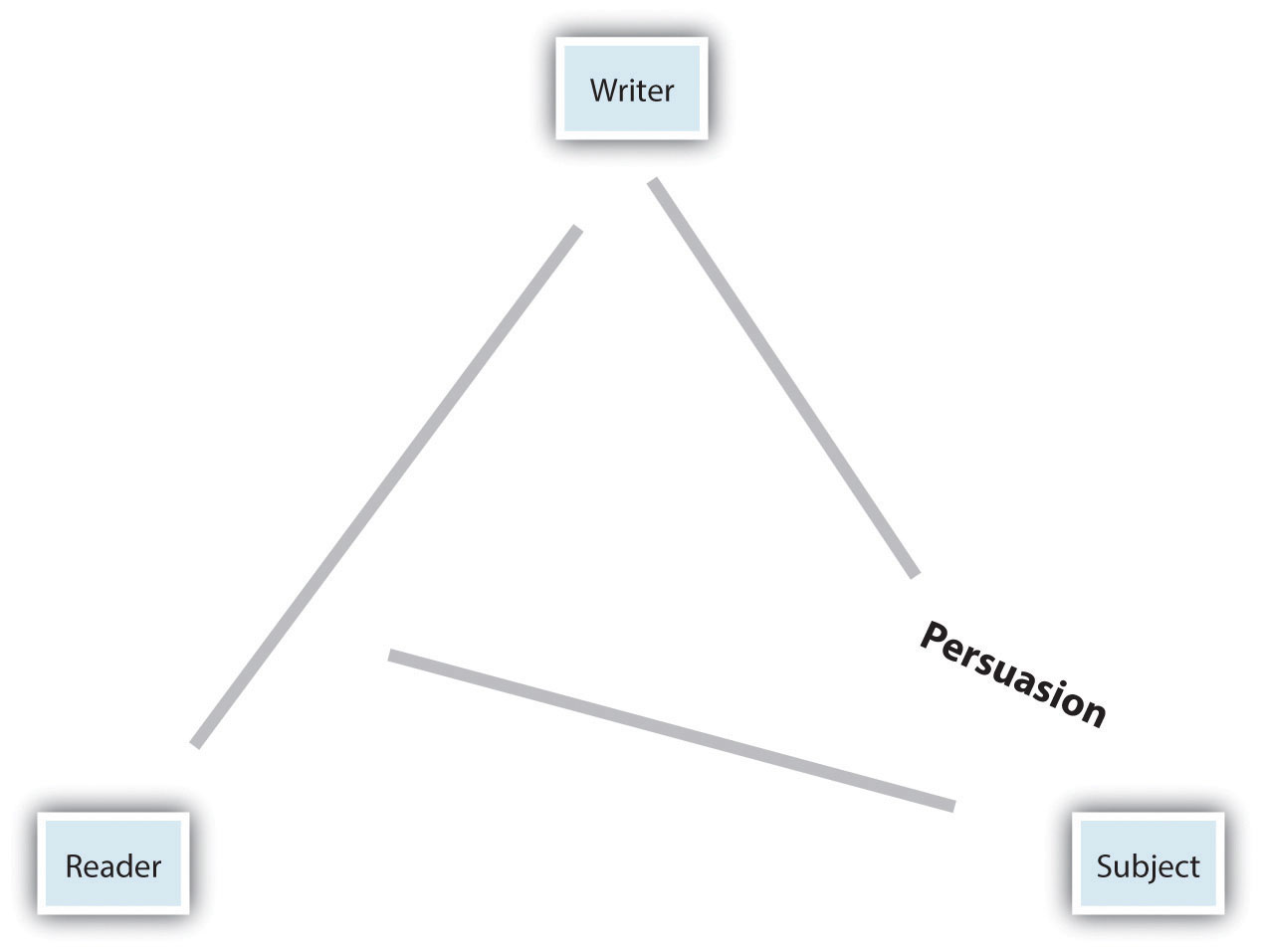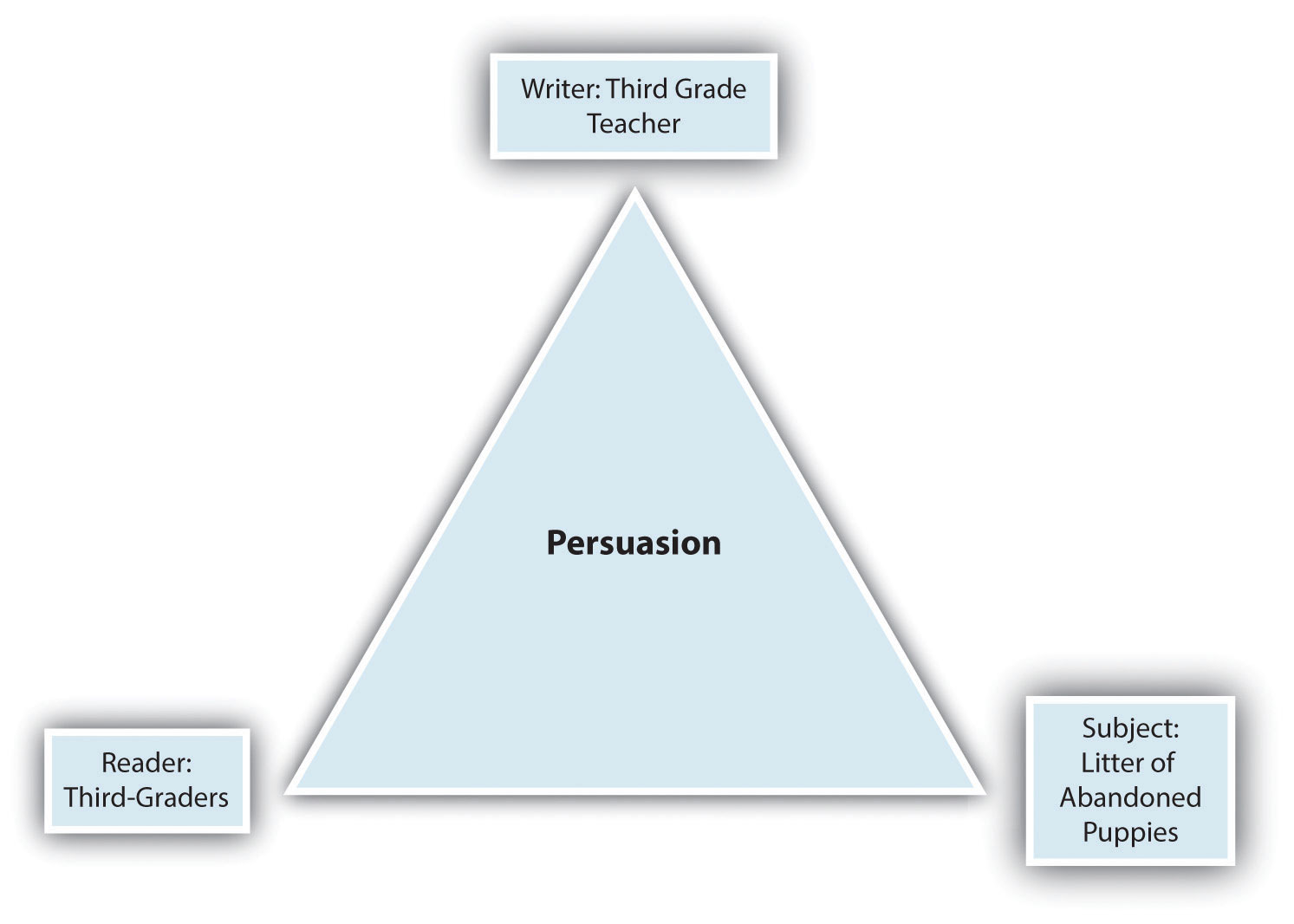1.2 Understanding the Principles of Rhetoric
Learning Objectives
Define rhetoric.
Name the three elements of communication that interact in a rhetorical situation.
Explain how these three elements of communication might influence each other.
To ensure that your point is understood, consider the principles of rhetoric. RhetoricPersuasive language. is persuasive language, achieved through the interplay of three elements of communication. In oral or visual communication, those elements are the speaker or actor, audience, and subject. In written communication, which is this text’s primary concern, those elements are the writer, reader, and subject. This interplay is often depicted as a triangle in which all three elements work in concert to persuade. A rhetorical situationAn occasion when any of three elements of communication—writer, subject, or reader—has the potential to influence any of the other three elements. occurs when any of the three elements has the potential to influence another element.
Imagine that your college administrators have proposed a curfew for freshmen living in the dormitories. The subject of curfews may influence you to write an editorial for the local newspaper. One of your readers may be the administrator who proposed the curfew, and perhaps that administrator will modify or even abandon her proposal as a result of reading your editorial. In this dynamic, the subject (curfews) has influenced the writer (you), the writer has influenced the reader (the administrator), and the reader has influenced the subject (curfews).
Writers may be influenced by subjects, such as curfews, but they can also be influenced by readers. Imagine writing a text to your best friend expressing your feelings about curfews. How would that message compare with the editorial you have written for the newspaper? Do you imagine you would change your wording or manner of address, depending on your readers’ attitudes and levels of expertise?
A writer without a reader, however, is not in a rhetorical situation; one may write whatever one likes in a private journal, but doing so will carry no influence. Likewise, a writer who rails against setting suns is not in a rhetorical situation, as sunsets will not be influenced by writers.
A writer who misjudges the reader, or who is not in command of the subject, may fail to persuade the reader. For example, Rush Limbaugh, in “Sorry, but the Earth Is Not Fragile” from his first book, writes,
When you compare the environmental situation in America with that of other countries, we win hands down. We have the cleanest country in the world. Well, maybe Switzerland is cleaner, but it is merely a tourist museum. The world has never seen anything like the United States of America. In higher education, economics, lifestyle, prosperity, form of government, and personal freedom, we are blessed with more and better than any other country. Yet, the environmentalist wackos go out of their way to find fault with everything in America.
Whatever one might think of the “environmental situation,” several of Limbaugh’s claims are insupportable. Has Limbaugh, for example, satisfactorily established the criteria for comparing the United States to every other country in the world in the categories of higher education, economics, lifestyle, prosperity, form of government, and personal freedom? Has he compiled and published the comparison data? Other remarks are simply derisive or resort to name-calling and hyperbole. The critical reader will not be persuaded, and Limbaugh will have fallen short in his rhetorical purpose.
Concept Check
Consider the Rhetorical Situation
Imagine the following rhetorical situation: the subject is a litter of abandoned puppies; the writer is a third-grade teacher who volunteers at an animal shelter; the reader is a class of third-graders.
Explain how
the writer might influence a reader.
the writer might influence a subject.
the reader might influence a writer.
the reader might influence a subject.
the subject might influence a writer.
the subject might influence a reader.
Key Takeaways
Rhetoric is persuasive language.
A rhetorical situation exists when any of three elements of communication—writer, subject, or reader—has the potential to influence any of the other three elements.
Writers who do not understand their subjects or their readers risk losing their potential to persuade.



